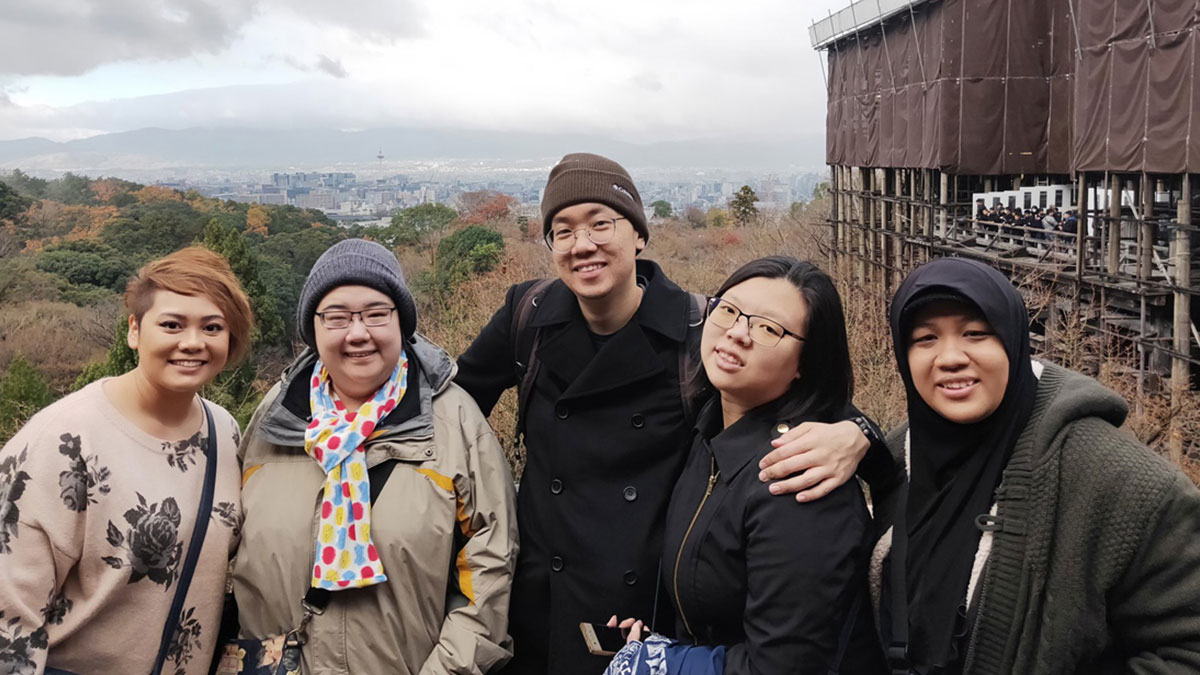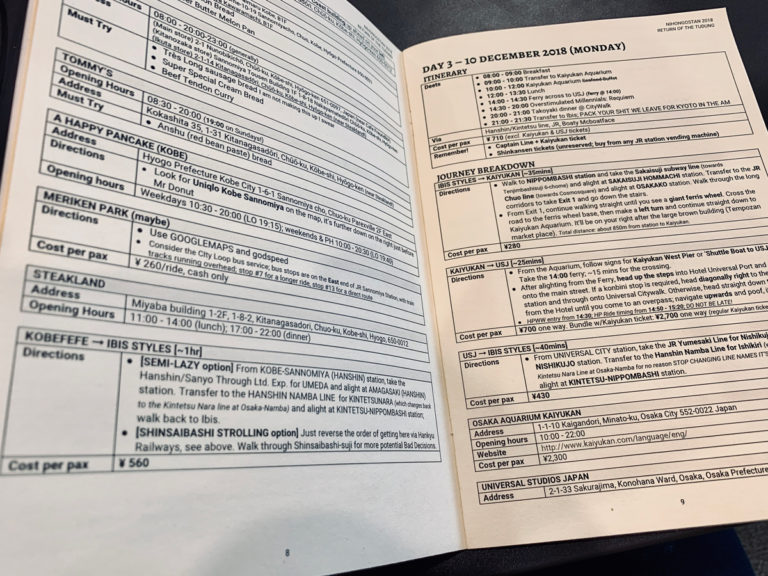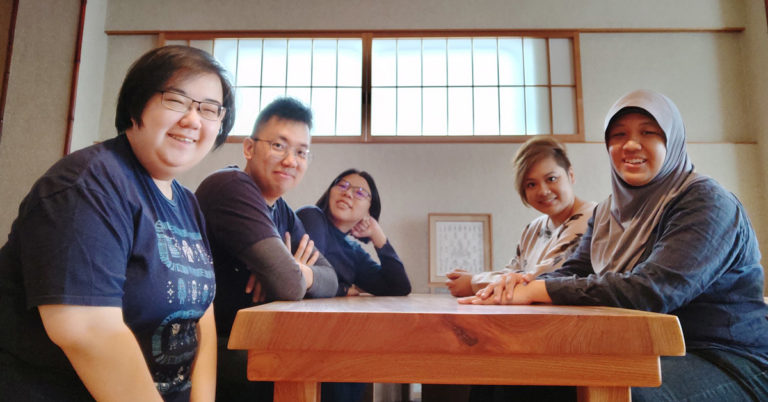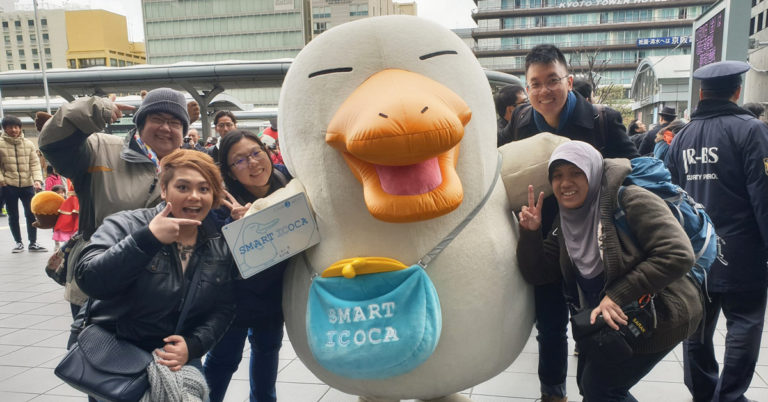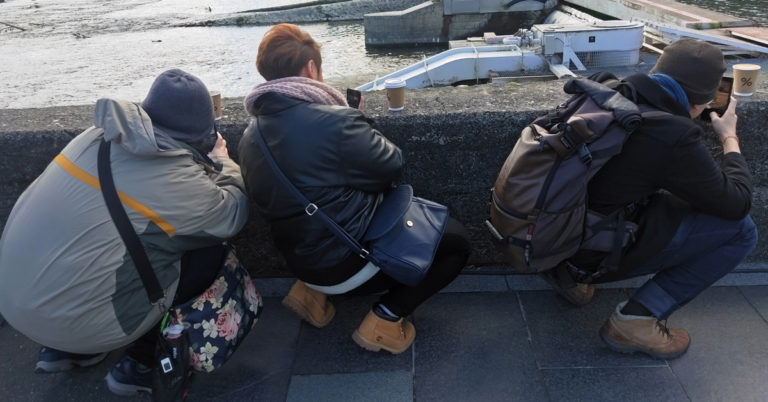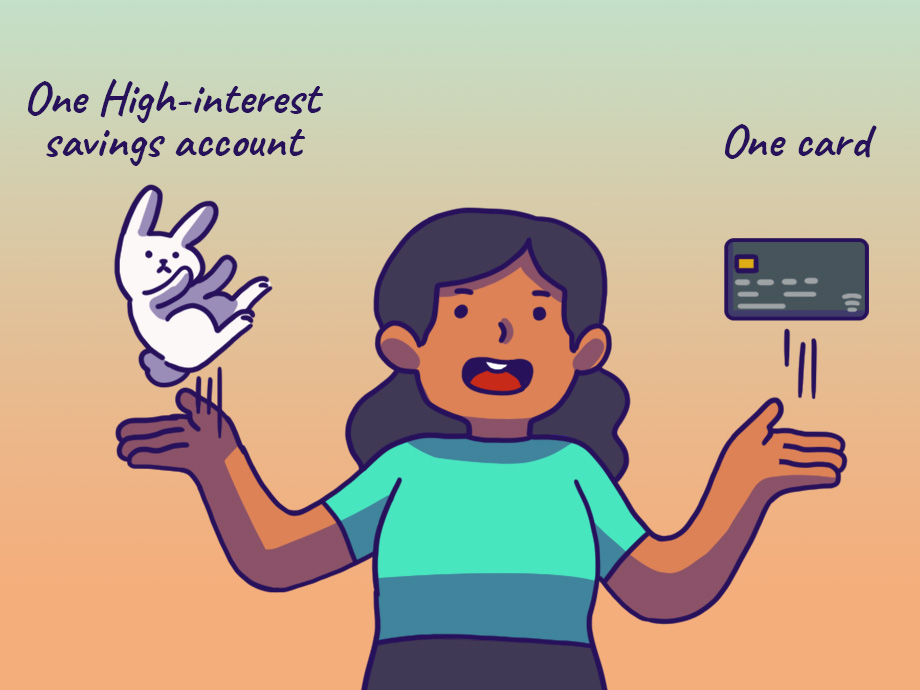4. Do you track expenses very closely during a trip?
Lyn: Yeah, mostly because we need to track our physical cash, and individually often pay for the whole group’s lunch/dinner.
Max: One of us usually steps up to pay for the whole group for ad hoc and group purchases. We’ll regroup in one of our rooms after we return to our hotel to work out how much we need to pay each other. Pro-tip: It’s easier to do it at the end of each day to circumvent late-trip amnesia because receipts do get mixed up, especially if you can’t read Japanese.
Viki: I used an expenses app on my phone. I have terribad memory, and it was easier to track almost immediately after purchase especially when you routinely have fiddly amounts.
5. How do you manage your finances while planning trips? (In other words, how do you remain a financially responsible adult?)
Lyn: Starve.
Viki: Lyn, please.
Sarah: We pay for hotels, tickets and other stuff in advance on a monthly basis, before the actual day. So we’ll know what has been paid for. Besides that, I save up money each month to change money; we also track JP yen to SGD rates, so that’s why we don’t change all at one go.
Max: Apart from cutting down on my daily expenses, I also did do some freelance projects (on top of my day job) to get some extra moolah, and the money came in before the trip so I had extra padding in my wallet.
Viki: I set up a savings target as soon as we started talking about the trip, with a goal to hit the target a couple weeks before we went. Every month, I put aside a certain amount from my regular spending budget into my trip fund.
6. Do you tend to list big ticket items prior to the trip so you can stick to your budget?
Viki: How would you keep a budget if you don’t list out stuff like that?
Lyn: We first lock down plane tickets and accommodation, as well as any major traveling expenses (e.g. Shinkansen tickets). After that, it’s anyone’s guess.
Max: It’s always good to buy big ticket items way in advance. My flight tickets are usually almost 40 to 50% cheaper bought eight or more months in advance. Also, one-way flight tickets are much more expensive than return tickets.
Jo: It also gives you a peace of mind to know that the main items are settled so that you don’t have any huge surprises when it comes to spending.
7. When do you usually start planning trips? And how long does planning take?
Lyn: Anywhere between six to eight months. Our planning usually begins with places to eat and see, with pit stops for fandom trash and can we go here please?
Max: We tend to go through at least three versions of our documents: one as our initial sounding board just to throw everything we could possibly want to do, one for whittling down and giving it a semblance of structure, and the final, to-print version. We’re all super eager planners, so we tend to err on the side of caution.
Flight tickets are usually almost 40 to 50% cheaper bought eight or more months in advance.
Lyn: One thing to note – our itinerary is only done to determine how much food we can conceivably eat in one day. On the actual trip, we’re super flexible (except for things like Shinkansen or dinner reservations).
Jo: Also, each list has hierarchies of importance – Die-die Must See, Would be Great to Experience, Nice to See but Not Necessary if We Have No Time / Energy.
8. Do you think millennials should actively chase these experiential things, no matter the cost?
Max: Contrary to popular belief, we do apply common sense to what we do, including travel. If you ever go into debt just to travel, reconsider your life choices. Don’t become a begpacker. We started planning trips around a year in advance to allow time for each of us to decide if our finances were in a good place to afford them.
Sarah: They don’t need to actively chase experiential things no matter the cost. You can experience stuff locally or think within your means when planning trips. Anywhere is boring if they’re boring themselves – so make sure going to a place really matters to you. For us, the fun was being with our friends (and food). Don’t do things for immediate gratification – plan it properly.



